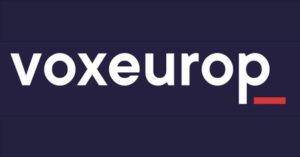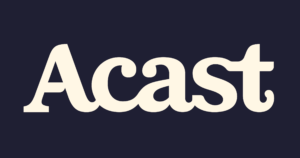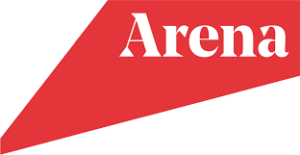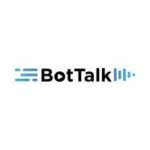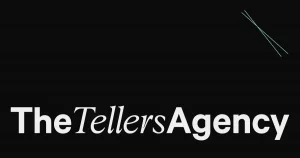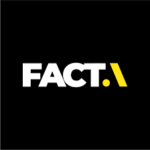On September 2023, we launched the BOOST phase with 9 of the 14 winners of the EXPLORE phase. These projects will benefit of further funding and coaching to create and implement their innovative ideas in the media sector.
Here below, we proudly introduce all our boosters :
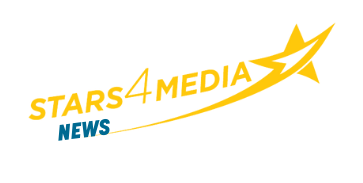
Data Management System for Newsrooms
Project: Data Management System for Newsrooms creates a system that, as with the photographic archive or the publication of content, allows all journalists in the newsroom to perform all their data management without consulting with the unit or specialized journalists. In this way, these data journalists can generate high-quality products. This Data Management System for Newsrooms is a product that does not exist on the market and can potentially optimize the processes of small and medium-sized media outlets.
RePod
Project: RePod is a project that aims at developing the podcast market at the European level and overcoming the language barriers that hinder its development. More specifically, RePod foresees the translation of successful podcast series produced by independent podcasters into different European languages, as well as strategic marketing and promotional campaigns to attract advertisers from the targeted countries to these newly translated series. Therefore, the project ultimately implies an increase of the audience of independent podcasters and of their revenue streams.
Real-time news coverage planning
Project: One topic was mentioned a lot more than any other in Finnish News Agency’s (STT) customer satisfaction review in spring 2022: the need for real-time planning of STT’s news coverage. Publishers want to know what kind of content news agency is going to provide for them. They need to know in real-time what the news agency is going to cover for them and how. They also need as much information about to coverage as possible. STT is well advanced in news planning but currently we aren’t able to provide real-time visibility in our own news planning process to our clients. We are at the beginning of this journey and are doing some changes to our web portal, but we would need to do so much more to meet our clients’ needs. With this project, we would do just that. This project would benefit the entire Finnish news media and have a major impact on the media news planning ecosystem due to all significant news outlets in Finland heavily relying their own news coverage on STT’s planning information.
European Cities Investigative Journalism Accelerator
Project: With the “European Cities Journalism Accelerator“, we want to build upon that work in five ways: 1. We want to carry out three specific investigations on housing in Europe; 2. we want to extend the technological framework we built for our first investigation; 3. to share knowledge about generating new subscribers/supporters for media outlets through investigative research and the participation of users; 4. to share our knowledge about collaborative research, workflows and technologies to smaller newsrooms in workshops and to slowly extend the network to additional European capitals; and 5. to start to develop more regular ways of reporting on shared urban problems across European cities in order to gain efficiency and save money through shared preliminary research and possibly even syndication of articles between the media partners.
APOLLOS
Project: A state-of-the-art of text-to-speech technology that allows high-quality natural synthesized voices. One of the strategic directions of the Mediahuis group is to build valuable digital relationships (subscriptions) with our customers. After implementing a first phase that explored how journalistic text can be provided in audio format in a scalable and flexible way in order to convert more readers into digital subscribers. Mediahuis will investigate the definition of a common text-to-speech platform and a proof-of-concept will be conducted for one of the brands in one of the Mediahuis entities. One of the key challenges is the support of different languages and dialects. At the moment Mediahuis delivers journalistic text in more than 8 languages (including Dutch, English, French, German, Portuguese, Luxembourgish, Frisian, Gaelic). But because local and regional news have gradually found their way to digital readers, the text-to-speech platform should support an even greater variety of dialects.
Dron Media: building Russian-language explanatory journalism network (in partnership with Ukrayinska Pravda)
Projects: Dron Media: building Russian-language explanatory journalism network (in partnership with Ukrayinska Pravda). The main goal of this project is to create a work system that would enable individual newsrooms benefit from cost-sharing and expertise-sharing while producing and distributing explanatory journalism content. Explanatory journalism was chosen here as a target format because of its significant social importance stemming from the need for audience education about complex and important topics and its comparably lower monetization potential through advertising comparing to other “general” formats.
The Tellers Agency: supporting Eastern European independent media
Project: The Tellers Agency will help independent media to search for commercial partners on the domestic markets and abroad, supporting teams in building successful commercial revenues. As saving independent media on these markets now is a question of saving the voice of democracy. Moreover, this would be the first project, which united Ukrainian, Belarusian and later other Eastern European countries (Moldova, Georgia) across media advertising, representing them on commercial markets in European Union and United States for the first time.
Boosting Community Engagement Models for European Fact-Checkers
Project: This project will create and test a cross-border community engagement model for fact-checking organizations that will transform the reach and impact of their work, and enhance the sustainability of their business models. Drawing on Maldita.es’ successful community model, we will explore and test ways to replicate this model within the Italian context and Facta.news audience. This project will augment the efficiency and impact of the Facta.news detection and debunking activities and increase their sensitivity to the needs of the Italian public by providing them with an enlarged and more engaged audience sending disinformation alerts. Meanwhile, Maldita.es will diversify its community model, converting it into a product that can contribute to the establishment of its mixed-income business model. Ultimately, in developing and testing professional standards of community engagement for fact-checkers, this project is a foundational step towards a more coordinated and engaged European audience in the fight against disinformation.
Community-based subscriptions for readers who cut expenses
Project: Over the last few years, digital subscriptions have been consistently growing. However, 2022 brought record inflation rates and the uncertainty caused by the economic impact of the pandemic and the war in Ukraine has been exaggerated by raising living costs and mortgage rates. As a result, it is getting harder and harder to acquire new subscribers and retain the current subscriber base. To mitigate that, we want to introduce innovative community-based subscriptions to attract (and keep) customers who need to limit their expenses. The model we plan to introduce will also be an interesting marketing and engagement mechanism by itself. We drew inspiration from crowd-funding tools used for support of valuable ventures also in media. We are eager to test if the crowd-funding mechanism for high-quality and community-engaged journalism would also be appealing to groups of friends, online communities, school or work buddies. Members of the group will be able to decide how to split the cost of group subscription: equally, voluntarily, or maybe there’s one founder. The larger the group, the lower the individual price of course. Also, when a group chooses to renew a subscription, loyalty will be rewarded with a reduced total cost.

